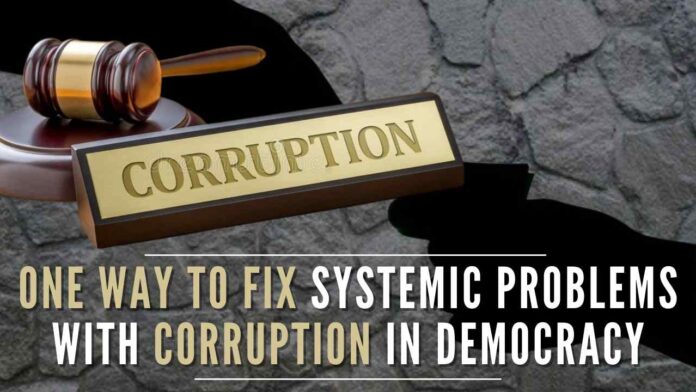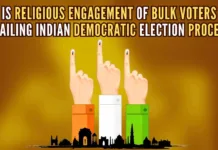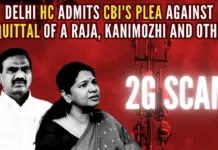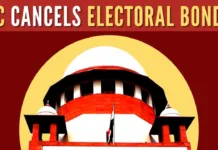
A critical analysis of the relationship between democracy and corruption
Corruption is the lifeblood that runs politics; it is more in developing countries.
The poorer a country, the less will be the income of the governments, and hence, less will be the salaries of public servants (politicians, bureaucrats, and judges), in absolute terms and in comparison to powerful people in the private business.
Public servants indulge in corruption to make up for their perceived shortfall in income compared to their counterparts in more developed countries, and in the private sector.
Fish starts rotting from its head. Corruption starts with politicians. Yet, we should concede that we need political parties in democracy to run governments.
Corruption can be curbed only by increasing the probability of being caught and increasing the quantum and speed of punishment.
If hypothetically, an honest PM was to somehow stop corruption completely, his/ her party would have no cadres to work for it and will lose very badly in the next elections.
So, democracy is designed to breed corruption.
Even well-meaning political parties, if any, would need lots of money to run their organizations to come to power and stay there.
The system should facilitate honest politicians to participate in politics and win elections.
The government funding of not only elections but also the entire functioning of political parties, at the panchayat, state, and central levels, is the most practical option to control corruption.
How do we facilitate this?
We should stop being hypocritical and start thinking logically, from the first principles.
At all levels, the governments should set apart a certain percentage of revenue towards funding political parties, including elections. I think 2 percent is fair, but any well-reasoned percentage should be fine.
The cost of corruption is orders of magnitude higher than the sum of bribes paid because the poor quality of roads/ bridges/ other infrastructure built, services delivered, etc., mean the society gets only a small fraction of value on its public investment.
For example, 10 percent corruption could lead to an 80 percent reduction in life and quality of infrastructure. Why else do we keep repairing the same streets every year, immediately after they are laid? This means when the government pays Rs.100, which includes Rs.10 in bribes, it could get only 20 percent value for the money.
We know the price India paid for allowing scams in 2G, coal, commonwealth, defence purchases, etc.
How much do we lose due to poor drainages, delayed projects, giving driving licenses to the undeserving and not giving to the deserving ones, giving undue favours like registration of property by under-valuing, frauds in giving loans including but not limited to Vijay Mallyas and Nirav Modis, the indifference of the regulators to such frauds, poor quality product purchases across all government departments, recruiting the undeserving and not recruiting the deserving, poor implementation of laws, political interference in police, leakages in benefits to the poor, etc?
If there is a way we could substantially reduce corruption, the outcome from government projects could be unimaginably high, which will be equivalent to increasing our GDP by several percentage points. The 2 percent or so towards funding our political system would be peanuts in comparison.
Political parties can be paid money in proportion to their votes polled in the latest relevant elections. They can use this money to pay their cadres on-going even during non-election times and to fight elections. Incidentally, it will create jobs for political workers who are not dependent on corruption.
But a condition can be imposed that political parties and politicians shall not spend any money other than this money on running their political system, and if found to do so, their parties should be penalized disproportionately to discourage it. And any form of corruption will be a strict ‘No, No’.
New laws should be enacted simultaneously to impose the severest punishment for any kind of corruption or malpractices of public servants, several orders of magnitude higher than those for similar offences of non-government servants; higher punishment should be given at higher levels, and it should always include substantial imprisonment.
And once prima facie guilt is established in such cases, the onus should be on the accused to prove their innocence. The privilege of the right to self-incrimination protection should be denied to them. Those who are not honourably exonerated but let off for want of proof should be denied service in government.
All these measures should bring in a new class of honest and service-minded people to politics, bureaucracy, and judiciary, and corrupt should be made to move out.
In my opinion, this model has a good chance of rooting out corruption. The trillion-dollar question may be, who will bell the cat? But at least a discussion on this topic should be started.
Note:
1. Text in Blue points to additional data on the topic.
2. The views expressed here are those of the author and do not necessarily represent or reflect the views of PGurus.
PGurus is now on Telegram. Click here to join our channel and stay updated with all the latest news and views
For all the latest updates, download PGurus App.
- How BJP can get 33%+ vote share in TN - April 1, 2024
- A transparent, equitable electoral funding alternative - March 19, 2024
- How TN BJP can come to No. 1 or No. 2 in 2024 LS polls - January 11, 2024










